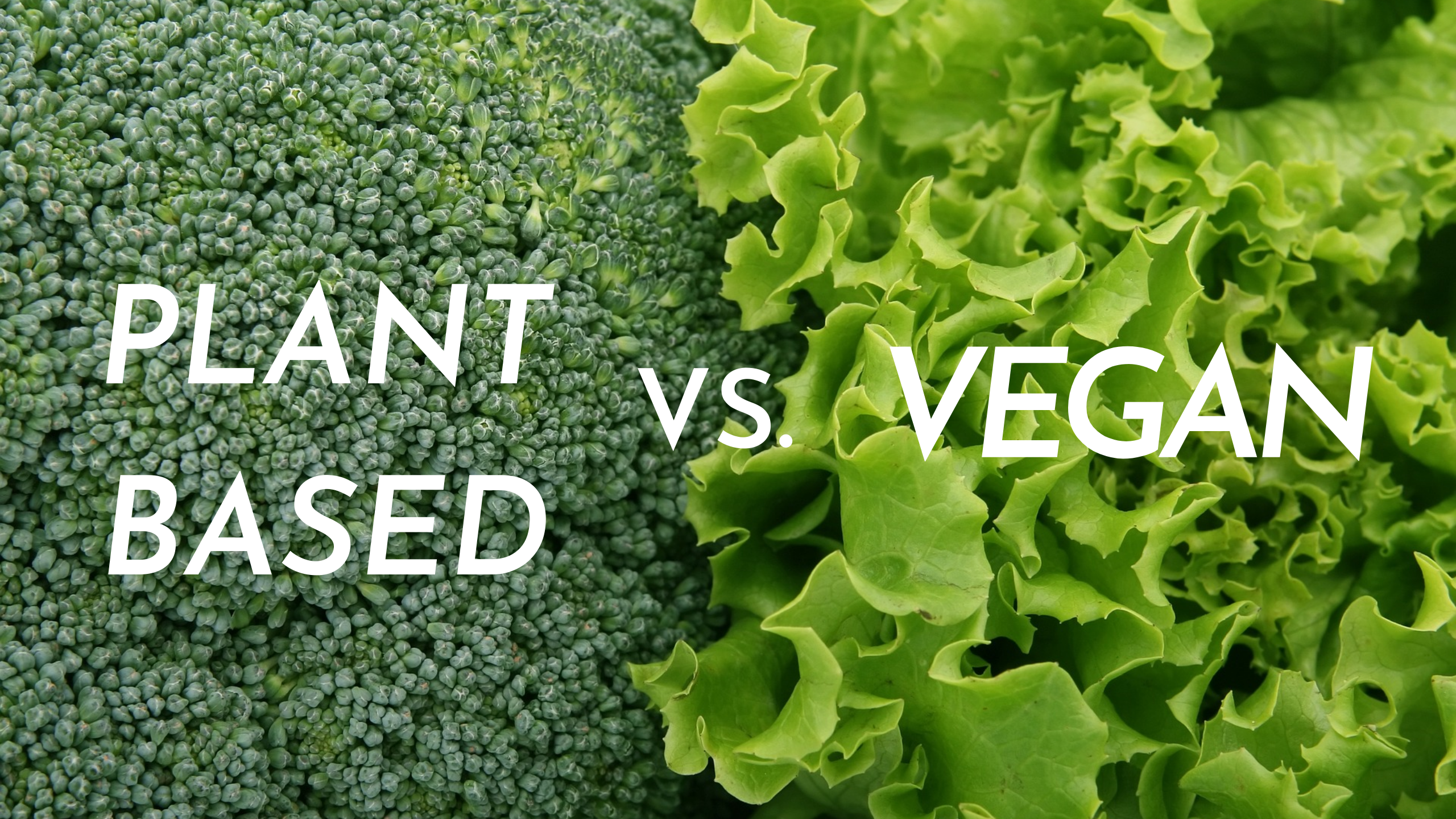Here’s your guide to understanding the two approaches: vegan vs. plant-based. Vegan and plant-based diets have been increasingly popular in recent years. Although these terms are often used interchangeably, they don’t mean the same thing. So, what’s the difference between plant-based vs. vegan diets?
What Is Vegan?
Before diving into differences in plant-based vs. vegan diets, let’s first look at what these terms really mean. Being vegan means you follow a philosophy of veganism. I say philosophy because veganism is much more than just a diet.
Veganism is an ideology, a way of living, a state of mind.
According to The Vegan Society, Veganism is a way of living which excludes all forms of exploitation of animals. Exploitation can happen not only for food but also for clothing, entertainment, experimentation, among other purposes.
Modern veganism has gone beyond the advocacy for the liberation of animals. Among their causes are many environmental concerns, as well as health concerns.
In recent decades, industrial farming came under fire because of its extensive use of water and CO2 emissions. Moreover, mass farming creates perfect circumstances for the spread of diseases.
Almost all recent viruses, including H1N1 and the current Covid-19, emerged from circumstances that are connected with the consumption of animals.
Thus, followers of a veganism campaign for many causes: the liberation of animals, conservation of the environment, and public and personal health. There are almost a million vegans in the world right now, with the number steadily growing every year.
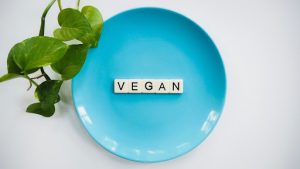
The Vegan Diet
Since we are particularly concerned with healthy diets, let’s look at veganism as a food choice. A vegan diet strictly excludes any animal products, or foods containing animal-based products, including honey. This is one of the differences between vegan vs. plant-based diets.
Among the excluded products are a lot of popular foods the majority of people consume daily. For example, both red and white meats, including fish, are not allowed on a vegan diet. All dairy products, including eggs, butter, cheese, and mayonnaise are also excluded.
There are plenty of foods that you can eat on a vegan diet. Fruits and vegetables are a must, as well as legumes, nuts, and grains. Nuts and legumes are essential for a vegan diet. These foods provide nutrients that are mostly found in meat, such as iron and protein.
(Check out our post on nuts here)
Veganism sometimes gets a bad reputation among health professionals and fitness lovers. Many indeed fall into a trap of iron or B12 deficiencies when cutting out animal products. However, you shouldn’t blame veganism for it.
If your vegan diet is thought out properly, there is no need to worry about your nutrients intake. It may be important for you to consult a doctor or a dietitian before going on a vegan diet.
They will help you make sure that your health is supported, and may advise particular supplements based on your history.
Can You Eat Honey On A Vegan Diet?
Notably, honey is also prohibited on a vegan diet. Honey is often thought of as vegan-friendly, but more and more followers of veganism consider this to be wrong. This is another contrast in plant-based vs. vegan diets.
Most people who follow a plant-based diet are okay with eating honey, as it can be a healthier substitute for sugar.
In simple terms, this is because humans exploit bees to obtain honey, which is thus against the vegan ideology. However, there are other issues associated with beekeeping. The Vegan Society claims that beekeeping involves unethical practices of breeding bees.
This is because honey is not only supposedly good for our health but the bees themselves. Honey is the energy source for the bees which keeps them alive.
When beekeepers remove the honey from the hive, they replace it with a substitute that’s similar to sugar. It is significantly different from honey, as it lacks many nutrients the honey contains. Thus, it may decrease the bee populations and reduce their overall health quality.
This leads to the environmental concerns associated with beekeeping. When farmers breed large populations of bees, other insects, as well as other bees, are threatened. Supposedly, with the rise of mass beekeeping, populations of native bumblebees have been declining.
Health Benefits of Going Vegan
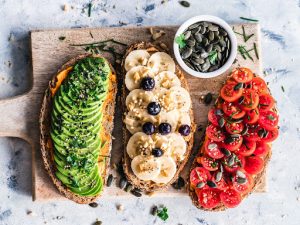
There are many health benefits of a vegan diet. It can help you lose weight, as the vegan diet is naturally lower in calories than its alternatives. Many studies find that control groups that followed a vegan diet lost more weight than people who were on other diets.
It follows that vegans on average struggle less with heart disease. As meats and dairy products are rich in fats, a reduction of saturated fats will lower the risks of blocked arteries.
Also, a vegan diet lowers your sugar levels in the blood, thus reducing the risks of developing type 2 diabetes. As red meats are often linked with cancer, a vegan diet is likely to lower the risks of some cancers.
Though there are some distinct differences in plant-based vs. vegan diets, health benefits are very similar.
History of Veganism
Though the contemporary wave of veganism came around in 1944, veganism can be traced back to 500 BC.
The Greek philosopher Pythagoras, who was also a mathematician, advocated against the killing of animals for human needs. Far away from Greece, in Asia, Buddha also spread the word of vegetarian diets.
In 1994, veganism, as we know it today, started to emerge. Donald Watson, the creator of the first vegan organization – the Vegan Society – criticized vegetarians for consuming dairy. With the help of five companions, he promoted the movement of veganism in the United Kingdom.
If you ever wondered how the term ‘vegan’ originated, the explanation is quite interesting. According to Watson, he and his friends tried to come up with a name for their movement, and many terms were rejected.
They finally settled on ‘vegan,’ which is made of three first and two last letters of ‘vegetarian,’ because. Metaphorically, Watson believed that ‘vegan’ marked “the beginning and the end of vegetarian”.
Since then, the Vegan Society has grown into a famous charity, which advocates for the liberation of animals.
Plant-Based Diet For Beginners
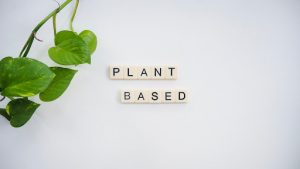
In simple terms, a plant-based diet includes all foods that come from plants and avoids animal products. This means that a plant-based diet is either fully or mostly composed of plant-based foods.
Similarly to Veganism, you are encouraged to eat fruits, vegetables, grains, legumes, seeds, and nuts. Some people follow this diet and still eat some meat or dairy. Thus, a plant-based diet is not necessarily vegetarian.
History Of The Plant-Based Diet
The plant-based diet originated a little later than veganism, in 1980. T. Colin Campbell, an American biochemist and one of the authors of The China Study, first used the term.
Campbell researched the benefits of vegetable-based, low in fat, and high in fiber diet in the context of cancer. In his study, he wanted to use a term that didn’t carry ethical underlying meanings. As a result, Campbell first introduced the term ‘plant-based’.
A couple of years later after his research was done, Campbell criticized the supplement industry for manipulating the term to their advantage. He clarified, in his opinion, that only whole plant-based foods had positive effects on one’s health.
This flows into the introduction of another, slightly different type of diet – whole-food, plant-based diet.
Plant-Based, Whole-Foods Diet
This diet is slightly different from a regular plant-based diet. Whole-Foods means that you are encouraged to consume unprocessed foods. Thus, a variety of seemingly plant-based foods are also excluded.
Foods like french fries and refined grains (white rice and white bread) are off the list, even if they are vegan-friendly. You should also avoid vegan butter, artificial sweeteners, chips, and crackers, as well as anything processed for longer shelf life.
Is a plant based diet good for you?
As a plant-based diet is very similar to veganism, thus the health effects are almost the same. It significantly lowers your risks of obesity, cardiovascular diseases, and type 2 diabetes.
It can also lower the possibilities of you having some cancers, in particular prostate and colon cancers. A plant-based diet can also improve your kidney function and help you lose weight.
A whole-foods plant based diet can have even more benefits for your health. As we described in our post about meat (here), processed foods (and meat in particular) are quite dangerous. Most medical professionals seem to agree that we should eat fewer processed foods.
Processed foods usually have a long list of ingredients that you can’t pronounce. Advances in science and technology have significantly increased the number of processed products found in grocery stores.
You can find healthy options in the canned section of your grocery store. Canned tomatoes, canned unsalted beans, and others are good choices to add to your pantry.
Stay away from potato chips and sugary pastries. These packaged goods are not very good for your health.
Sodas, pizzas, and burgers (even with beyond meat) land into this category as well. They contain few if any nutritious ingredients.
These processed foods are dangerous for your health. In particular, they’ve been repeatedly linked to various cancers. They also contain increased amounts of fat that contribute to heart diseases, obesity, and diabetes.
Plant-based whole-foods diet, therefore, can be very healthy for you! It encourages avoiding processed foods, thus minimizing your chances of getting many diseases.
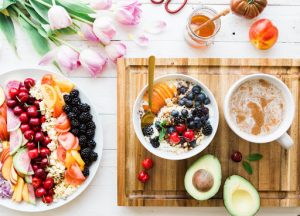
Main Differences: Plant-Based vs. Vegan Diets
If you find these diets very similar, you are not alone. Many people don’t know the differences between them, thus use all these terms interchangeably. However, there are multiple differences between the two approaches.
Original Motivations
Though both diets encourage the consumption of plant-based foods, the fundamental motivations for doing so differ. Veganism, as I discussed earlier, is a comprehensive lifestyle that goes beyond just your diet. Thus, this is the main difference between plant-based vs. vegan diets.
Historically, the main purpose of veganism is the liberation of animals. The grassroots of the movement are deeply ethical. Thus, vegans apply this philosophy to many, if not all areas of their lives.
Someone vegan is likely to be aware of the brands that exploit animals for testing or other purposes. They will avoid such brands. Also, vegans condemn the entertainment industry for using animals in the circus shows or zoos.
If you are wondering why vegans can sometimes get a bad rap, it’s because many see their life choices as excessive. It can be quite challenging to turn down products that have been a part of your life for decades.
From a strictly consumerist standpoint, quality, convenience, and price seem to almost always matter more than the ethical implications of production. Many people push back against a veganism movement precisely for these reasons.
A term ‘plant-based diet,’ on the other hand, emerged literally during research on its health benefits. Hence, the primary (and probably only) concern of this diet’s followers’ is their health.
This is different from veganism because a plant-based diet isn’t concerned with the exploitation of animals. Individuals who follow a plant-based diet, of course, can also support the veganism cause and try to contribute to it. But, it’s not a rule of a plant-based diet.
Attitudes Towards Meat
One of the most important differences between the diets is their approaches to the consumption of meat.
Someone who is a true follower of veganism eliminates meat from their diets. A person who follows a plant-based diet, on the other hand, may still consume little amounts.
Though the majority of people in both categories avoid meat at all times, there are some exceptions.
You dietary reasoning will determine whether you eat meat, or not. While veganism advocates for the elimination of animal products, a plant-based diet encourages eating foods that come from plants.
As these are fundamentally different, some people find it too difficult to eliminate meat right away. Thus, you may choose to adapt to a plant-based diet instead.
Should I Adopt a Vegan Or A Plant-Based Diet?
There’s no one right answer!
If you are trying to experiment with your nutrition, a plant-based diet might be a good choice for you. The truth is, being vegan can be challenging and stressful at first. More than 80% of all people who have ever been vegan went back to consuming meat.
Thus, a reductionist approach might be better for you. Reducing the consumption of animal products, rather than eliminating them, can be easier and make your transition smoother. The plant-based approach encourages you to crowd-out less desirable ingredients with plants, whole-grains, and fruits.
If you are politically charged and have the desire and confidence to change your life, veganism is for you. Remember, either option is good for you and the planet.
Whatever you choose, remember to have fun with it! 🙂
You may also like: PLANT-BASED DIET VS. KETO: What’s the difference? >>CLICK HERE!

